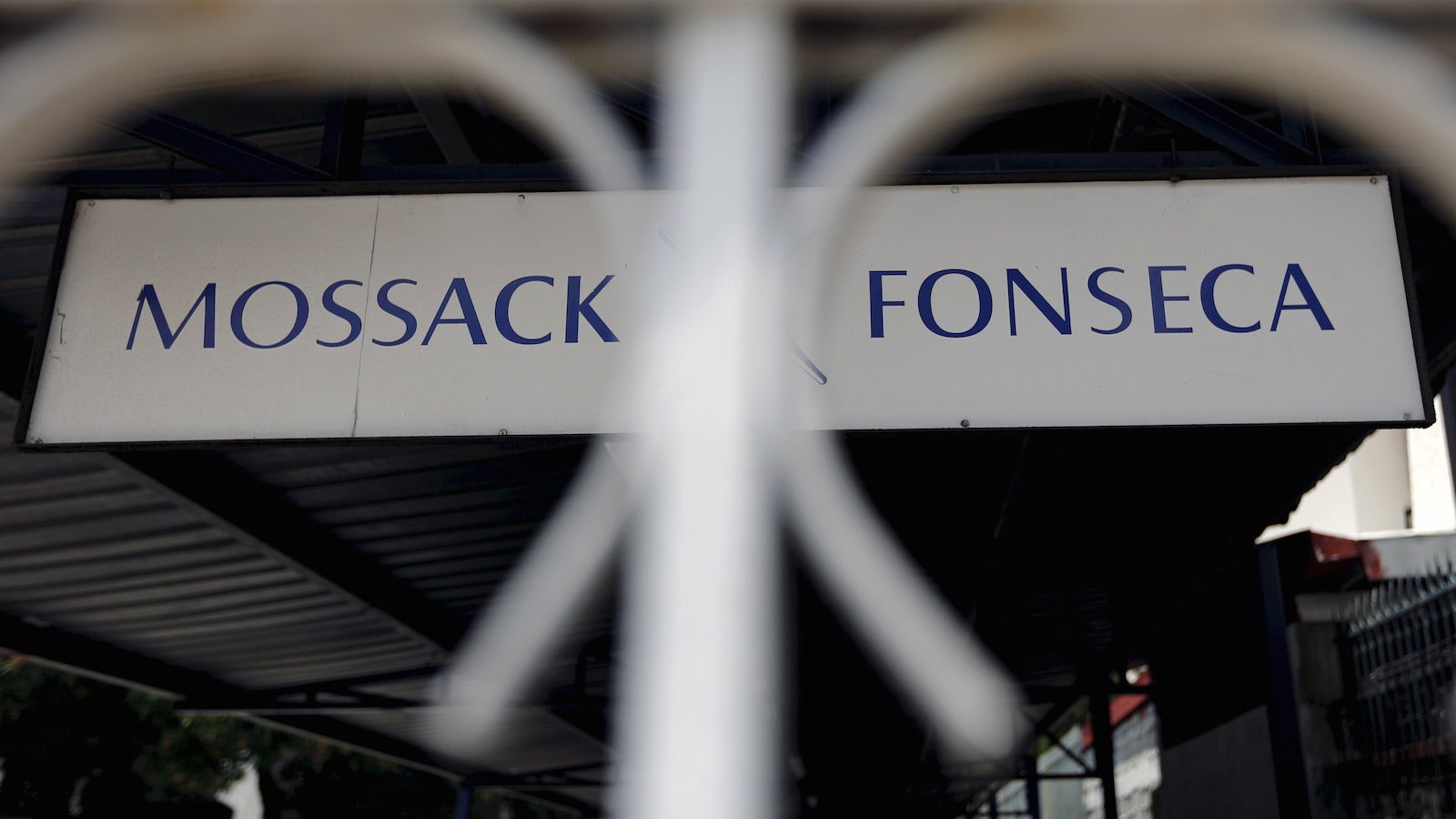The Panama Papers leaker speaks out, with a tantalizing offer for law enforcement
The anonymous source responsible for the surfacing of the Panama Papers has issued a statement on the website of the journalism consortium that has been sorting through the document trove. The unidentified whistleblower, writing under the name John Doe, rules out some of the speculation about his or her identity—”I do not work for any government or intelligence agency, directly or as a contractor, and I never have”—and makes a tantalizing offer to the authorities:


The anonymous source responsible for the surfacing of the Panama Papers has issued a statement on the website of the journalism consortium that has been sorting through the document trove. The unidentified whistleblower, writing under the name John Doe, rules out some of the speculation about his or her identity—”I do not work for any government or intelligence agency, directly or as a contractor, and I never have”—and makes a tantalizing offer to the authorities:
In the end, thousands of prosecutions could stem from the Panama Papers, if only law enforcement could access and evaluate the actual documents. ICIJ and its partner publications have rightly stated that they will not provide them to law enforcement agencies. I, however, would be willing to cooperate with law enforcement to the extent that I am able.
ICIJ refers to the International Consortium of Investigative Journalists, which on May 9 will release a second helping of information gleaned from some of the 11.5 million documents taken from the Panamanian law firm Mossack Fonseca.
The initial set of documents, released in April, has already led to the resignation of Iceland’s prime minister, Sigmundur Davíð Gunnlaugsson, who was revealed to be secretly connected to an offshore company in the British Virgin Islands. It also put new scrutiny on the financial dealings of UK prime minister David Cameron’s family. The second batch of information will mostly be a list of names, of shell companies and beneficial owners, rather than a document dump with actual records from the law firm.
The whistleblower’s 1,800-word statement about the leak, titled “The Revolution Will be Digitized,” argues that the surfacing of the documents has succeeded where courts, regulators, tax authorities, and the private sector have not: in holding the political and financial elite accountable for wrongdoing, such as tax evasion and other crimes frequently cloaked in the secrecy offered by shell companies.
The statement also calls on governments to provide greater protections for whistleblowers, and argues that an erosion in ethical standards has shaped a capitalist system “which is tantamount to economic slavery. In this system—our system—the slaves are unaware both of their status and of their masters, who exist in a world apart where the intangible shackles are carefully hidden amongst reams of unreachable legalese.”
The whistleblower admonishes the legal profession for being complicit in this, and also takes specific aim at Mossack Fonseca, saying its founders and employees “should have to answer for their roles” in activities described by the whistleblower as criminal. Mossack Fonseca could not be immediately reached to comment. The firm issued a statement last month saying it “has operated beyond reproach“ (pdf) in its home country and abroad; and offered its responses to specific cases that surfaced in the press after the Panama Papers came to light.
The ICIJ says the whistleblower’s statement, posted on May 6, was authenticated by the German newspaper Süddeutsche Zeitung, which received the leak, as having come from the Panama Papers source. Süddeutsche Zeitung has been working with the ICIJ and dozens of other news organizations around the world to sift through and report on the information.